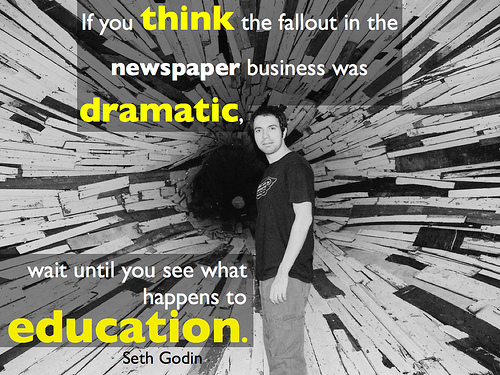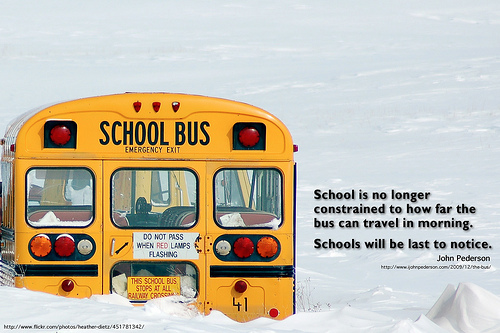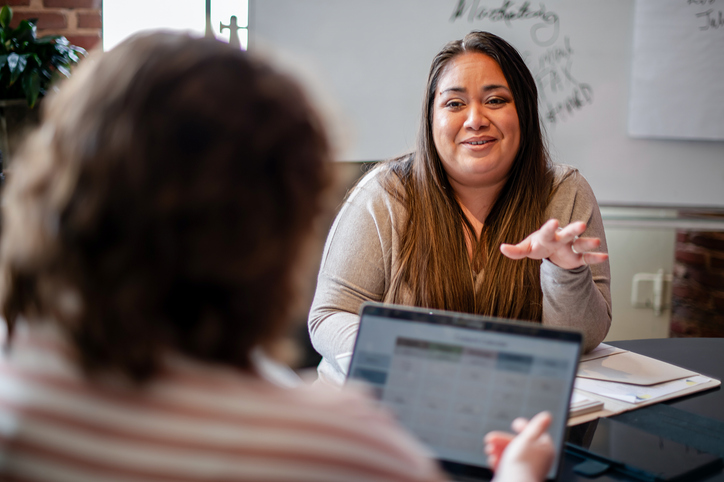Have you thought about this? by Dean Shareski

cc licensed flickr photo shared by dkuropatwa
The average teacher involved in the busyness of "the daily grind" of teaching and learning likely isn't spending too much time thinking about how the current status of the newspaper and entertainment industry might impact education. There isn't much on the immediate horizon threatening the livelihood of the millions of teachers who work behind the closed doors of classrooms around the world.
There are likely many authors and futurists who have written and are writing about this. Having read Disrupting class over a year ago, it is one book that points to the shift to online learning. That's already started. In our school division and likely in yours, it's nearly to the point where a high school student could take their entire high school education online. While this represents some wonderful options for students, there already is a caution and effort to limit this. For example, if a student decides she wants to take chemistry online but it's offered in the school, she may not be given the option. Obviously this is done to protect the staffing and in school schedules but it may not be what's best for kids. I doubt whether we'll always see these restrictions. We already have some students taking courses not only from outside their schools but in some cases outside our division. How long before we have students taking courses from anywhere?
What if a teacher begins to gain a reputation as a premeire teacher of calculus and word gets out and suddenly everyone wants to take calculus from him? While these types of situations have occurred inside schools, it's been easier to squelch the competition and use other factors to maintain control of student choice. Just like the music,newspaper and movie industry, that won't last.
cc licensed flickr photo shared by shareski

So outside of a revamped education system, what can and should teachers be doing to prepare for the day when students begin to exercise their right to learn from anyone, anywhere and anytime?
Beyond the insipid use of test scores to compare schools, classrooms and teachers, the transparent nature of those who share their good work online will certainly make parents and students more aware and pursue the best they can get. So while I would never advocate for a student to totally take her education online a rhetorical question I've raised many times with educators both inside and outside our district is, "Given the potential of a totally online education, what are you doing in your classroom that will make students want to attend every day?"
Tools and ideas to transform education. Sign up below.
